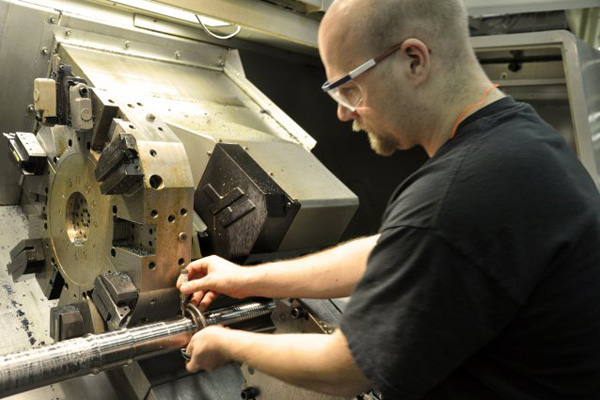Leadership skills military veterans have developed in addition to their abilities to work under pressure and use problem-solving techniques make them ideal candidates for careers in the U.S. manufacturing sector. In fact, manufacturing industry insiders expect about 2.5 million job openings in the coming decade, and many company cultures reflect those of the military. Offering veterans opportunities in the workforce can bring discipline and innovation to every part of the manufacturing industry.
Veterans fit well in private industry
Manufacturing professionals know how important it is to communicate well with co-workers and customers, similar to how military veterans have learned to work and help others in difficult conditions. In addition, the teamwork and planning necessary to succeed in efforts from humanitarian relief to life-threatening battlefield conditions gives vets the discipline and drive to work autonomously and be accountable. In many cases, these values can’t simply be taught — it’s necessary to live them — and veterans have done just that.
Employers say they consider these soft skills as important or more important than technical skills, and veterans have many of these desired skills and attributes from teamwork to leadership and the ability to adapt and work with ambiguity. And manufacturing companies in particular need the goal-oriented drive veterans bring.
Employing veterans benefits the nation
Where did they get this drive? Military personnel and their families tend to live unusual and sometimes difficult lifestyles in which spouses and parents are gone months at a time, so working toward goals is a must. And while these lifestyle approaches are necessary, it’s important civilians also see the military as a step toward lucrative private careers at home. This can motivate others to volunteer for future military service and prove themselves through hardships inherent in defense of the nation. Living though those hardships, however, can sometimes prove difficult for veterans retiring or leaving service.

To assist veterans transitioning back to civilian life, the Veterans Affairs GI Bill offers training in vocational and technical areas, entrepreneurship, as well as undergraduate and graduate degree programs. In some states, however, trade schools that provide skilled labor to future manufacturing industry professionals face bureaucratic roadblocks. Private schools must prove they’re not engaging in any predatory practices before veterans can use their benefits there, but the length of time to approve schools varies widely from state to state. Streamlined approval processes can help military veterans take classes more efficiently and allow for easier transitions into civilian and working life.
Where can veterans find manufacturing jobs?
A coalition of manufacturing companies, along with vocational schools and community colleges, provides resources through Get Skills to Work: Military to Manufacturing. The website provides a look at opportunities for veterans in manufacturing, including careers as production managers, machinists, and industrial designers. Details on important degrees and credentials plus an interactive map that facilitates job searches nationally makes Get Skills to Work a useful first stop for veterans looking for manufacturing jobs.

Thank you for this post. My son is planning to join the ranks, primarily for the educational benefits and free training. Smart move for building talent — Greg Carter (U.S. Navy)